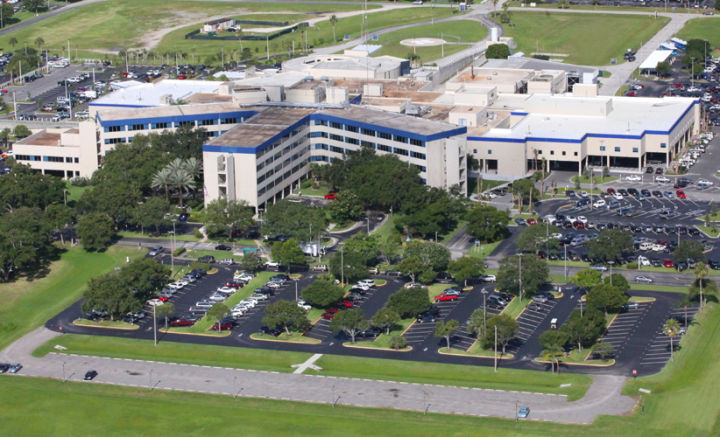
INDIAN RIVER COUNTY — Hospital District trustees have decided to tell the Indian River Medical Center they want to reduce the amount the District pays the hospital for indigent care by more than half as of Oct. 1.
Their starting offer will be to pay the Medicaid reimbursement rate of $900 for each day an indigent patient spends in the hospital – a dramatic cut from the $1,997 per day the Hospital District currently is paying.
For the hospital, which is already struggling to stem financial losses, the cut would have a significant impact unless the two parties reach a compromise on a higher reimbursement figure.
“The last time the District went to Medicaid rates, the hospital almost went bankrupt,” warned hospital board member Hugh McCrystal who attended the District meeting.
But the Hospital District – seven elected trustees who direct property tax dollars to the hospital for indigent care – has been grappling with how to deal with unexpected overruns from the hospital that are causing the District to have to dip deeply into reserves or consider tax hikes to pay the bills.
While the District has agreed to reimburse all overruns for 2014, it plans to change the reimbursement rates to the hospital for 2015 to avoid tax increases.
“I believe we have a strong fiduciary responsibility to the taxpayers. I am totally committed to the funding of indigent care … but we’re funding at rates significantly above Medicaid and in some cases above Medicare and not significantly below private pay, while the numbers coming into us from the hospital continue to explode,” said District trustee Gene Feinour.
For fiscal year 2014, the District committed $8 million to the hospital in reimbursement money. But that amount could increase to $9 million because of unanticipated bills from the hospital, which are already $386,000 above budget for the first four months of the current fiscal year.
If the hospital and the District can’t agree on a reduced reimbursement rate, the terms will have to be decided by an arbitrator. But for starters, District trustees agreed to put the Medicaid reimbursement rate on the table.
The unexpected hospital bills to the District for fiscal year 2014 are caused mainly by a large increase in indigent patients showing up at the hospital’s Emergency Department.
District trustees have recently questioned whether the hospital is doing all it can to qualify patients without money for Medicaid, rather than classifying them as indigent and presenting the Hospital District with a bill.
Hospital CEO Jeff Susi has said that the hospital has “made every effort to qualify patients for Medicaid … and will continue to pursue Medicaid qualifications aggressively.”
Nevertheless, the escalating bills from the hospital to the District have set the stage for the District to change the Indigent Care Agreement with the hospital.
According to the Indigent Care Agreement, District trustees must complete negotiations with the hospital between March 1 and April 30.
During that time, the District can also change the basic terms of the agreement, which would take effect in fiscal year 2015.
The seven District trustees agreed that Spackman, Smith, Feinour and Harris would be the negotiating committee.
Hospital leadership has said that it wants the District lawyer and hospital lawyers to be the main link in communications.
“We’ll begin by offering the Medicaid rate and the hospital will have to tell us what the Medicaid rate will do. Then we’ll decide how to move and possibly compromise,” said District trustee Smith.



